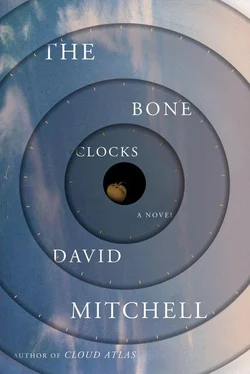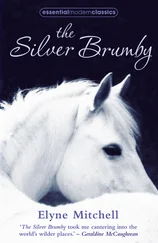“Creespin!” Here comes Miguel Alvarez, my Spanish-language editor, smiling as if he has a present for me. “Creespin, I have a small present for you. Follow me a little, to a place a little more discreet.” Feeling like an Irvine Welsh character, I follow Miguel away from the hubbub of the main party to a bench in the shadow of a tall wall behind, indeed, a tangle of cacti. “So, I have items you ask for, Creespin.”
“That’s most obliging of you.” I light a cigarette.
Miguel slips a small envelope the size of a credit card into my jacket pocket. “Enjoy, is shame to leave Colombia without tasting. Is very very pure. But a thing, Creespin. To use here, here in Cartagena, in private, is not big deal. But to transport, to carry to airport”—grimacing, Miguel slices his throat. “You understand?”
“Miguel, only a deadhead would consider taking drugs anywhere near an airport. Don’t worry. What I don’t use, I’ll flush away.”
“A good plan. Play safe. Enjoy. Is best in world.”
“And were you able to find a Colombian phone?”
“Yes, yes.” My editor hands me another envelope.
It, too, goes into my jacket pocket. “Thank you. Smartphones are great when they work, but if the coverage is dodgy you can’t beat the little old phones for sending texts, I find.”
Miguel tilts his head, not really agreeing, but thirty dollars, or however much the thing cost him, is a cheap price to keep the Wild Child of British Letters onside. “So, now you have all, and all is good?”
“Very good indeed, Miguel, thank you.”
Like my best plots, this one is writing itself.
“Eh, Crispin,” beckons Kenny Bloke, the Australian poet, as we pass a huddle of celebrants on the far gate of the cactus garden. “Some people here to meet.” Miguel and I join the small group of writers, apparently, under a canopy of tree ferns. The foreign names don’t really sink in — none has had a story in The New Yorker , so far as I’m aware, but when Kenny Bloke’s introducing me to the pale, dark-haired, angular woman, I suffer a throb of recognition even before he names her: “Holly Sykes, a fellow Pom.”
“Nice to meet you, Mr. Hershey,” she says.
“You’re vaguely familiar,” I tell her, “if I’m not mistaken?”
“We were both at the Hay Festival on the same day, last year.”
“Not that sodding awful party in that ghastly tent?”
“We were both in the signing tent, actually, Mr. Hershey.”
“Hang on! Yes. You’re that angel author. Holly Sykes.”
“Not angels in the harps-’n’-haloes sense, though,” interjects Kenny Bloke. “Holly writes about inner voices — and as I was just saying, there’s a strong affinity with the spirit guides my people believe in.”
“Miss Sykes,” says Miguel, oleaginously. “I am Miguel Alvarez, editor of Ottopusso , editor of Creespin. Is great honor.”
The Sykes woman shakes his hand. “Mr. Alvarez.”
“Is true you sell over half-million books in Spain?”
“My book seemed to strike a chord there,” she says.
“Uri Geller struck a chord everywhere.” I’m drunker than I thought. “Remember him? Michael Jackson’s best mate? Big in Japan? Huge.” My cocktail tastes of mango and seawater.
Miguel smiles at me but swivels his eyes back to the Sykes woman like an Action Man figure I once owned. “You happy with your Spanish publishers, Miss Sykes?”
“As you pointed out, they sold half a million copies.”
“Is fantastic. But in case of problem, here, my card …”
As Miguel hovers, another woman materializes by the tree fern’s trunk like a Star Trek character. She’s dark, golden, mid-to-late thirties, and impalingly attractive. Miguel says, “Carmen!” as if he’s delighted to see her.
Carmen stares at Miguel’s business card until it vanishes into his jacket pocket, then turns to Holly Sykes. I’m expecting a Latina accent full of thunder, but she speaks like a Home Counties domestic-science teacher. “I hope Miguel hasn’t been making a nuisance of himself, Holly — the man is a shameless poacher. Yes, you are , Miguel — I know you haven’t forgotten the Stephen Hawking episode.” Miguel tries to look jokey-penitent, but misses and looks like a man in white jeans who underestimates a spot of flatulence. “Mr. Hershey,” the woman turns my way, “we’ve never met. I’m Carmen Salvat, and I have the singular privilege”—a dart aimed at Miguel—“of being Holly’s Spanish-language publisher. Welcome to Colombia.”
Carmen Salvat’s handshake is no-nonsense. She radiates. With her free hand she toys with her necklace of lapis lazuli.
Kenny Bloke pipes up: “Holly mentioned that you also publish Nick Greek in Spanish, Carmen?”
“Yes, I bought the rights to Route 605 before Nick had finished the manuscript. I just had a good feeling about it.”
“Bloody blew me away, that book did,” says Kenny Bloke. “Totally deserved last year’s Brittan Prize, I reckon.”
“Nick has a lovely soul,” says a Newfoundland poetess, whose name I’ve already forgotten but who has the eyes of a seal gazing out of a Greenpeace poster. “Truly lovely.”
“Carmen knows how to pick a winner,” says Miguel. “But I think, in sales, Holly is still streets ahead, no, Carmen?”
“Which reminds me,” says Carmen Salvat. “Holly, the minister of culture’s wife would love to meet you — could I be a pest?”
As the Sykes woman is led away, I watch Carmen Salvat’s appetizing haunches and get to work on a fantasy in which my phone rings — right now: a doctor in London with the catastrophic news that Zoë’s Saab was knocked off the Hammersmith flyover by a drunk driver. She and the girls were killed instantly. I fly home tomorrow for the funeral. My grief is ennobling, but crushing, and I withdraw from life. I’m glimpsed occasionally riding the obscurer London Tube lines, out in zones four and five. Spring adds, summer multiplies, autumn subtracts, winter divides. One day next year, Hershey finds himself at the end of the Piccadilly Line at Heathrow airport. He exits the Tube, wanders into Departures, and glances up at the board to see the name “Cartagena”—the last place on earth where he was still a husband and father. On an impulse he cannot explain, he buys himself a one-way ticket — for some reason he has his passport with him — and the evening of that very same day finds him wandering the streets of the old colonial quarter of the Colombian town. Girls in love with boys on scooters, screeching birds, tropical flowers on winding vines, saudade , and solitude, One Hundred Years of it; and then, as the tropical dusk darkens the corners of the Plaza de la Aduana, Hershey sees a woman, her fingers toying with a necklace of lapis lazuli, and they stand still as the world eddies about them. Surprisingly, neither is surprised.
MANY COCKTAILS LATER, I’m helping a royally bladdered Richard Cheeseman into the lift and back to his room. “I’m fine, Crisp, I look drunkier than I am, really.” The lift doors open and we step inside. He staggers like a drugged camel in storm-force winds. “Jussamo, I f’got m’room number, I’ll just”—Cheeseman takes out his wallet and drops it—“oh, bumplops’n’pissflaps.”
“Allow me.” I pick up Cheeseman’s wallet and take out the swipe-card in its sleeve—405—before returning it. “There you go, squire.”
Cheeseman nods his thanks and mumbles, “If th’numbers in y’room number add up to nine, Hersh, you’ll never die in it.”
I press 4. “First stop, your room.”
“I’m fine. Icanfindmy — my — my way home.”
“But I’m duty-bound to see you safe to your door, Richard. Don’t worry, my intentions are entirely honorable.”
Читать дальше












